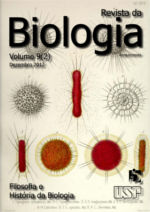Pseudo-history and science teaching: the case Robert Hooke (1635-1703)
DOI:
https://doi.org/10.7594/revbio.09.02.07Keywords:
history of biology, textbooks, pseudo-history, Robert Hooke.Abstract
This research analyzes characteristic features of mythical narratives on historical episodes in textbooks. The presence of these components is indicative of what Douglas Allchin called “pseudohistory”, which should be avoided in science education. The historical episode examined in biology textbooks approved in PNLEM/2009 was the observation of cork by Robert Hooke, in the 17th century. The results show that although contributes to metascientific discussion, the proposal seems inadequate when applied to very short materials, requiring an in-depth study of the historical episode in question.Downloads
Download data is not yet available.
Downloads
Published
2018-04-23
Issue
Section
Artigo
License
We ensure that our journal does not retain any copyright and that these are exclusive of the author(s) of the text. In that sense, we intend to break any restrictions to the published material and to achieve more intensely our goal of communicating science.
How to Cite
Tavares, T. F., & Prestes, M. E. B. (2018). Pseudo-history and science teaching: the case Robert Hooke (1635-1703). Revista Da Biologia, 9(2), 35-42. https://doi.org/10.7594/revbio.09.02.07






